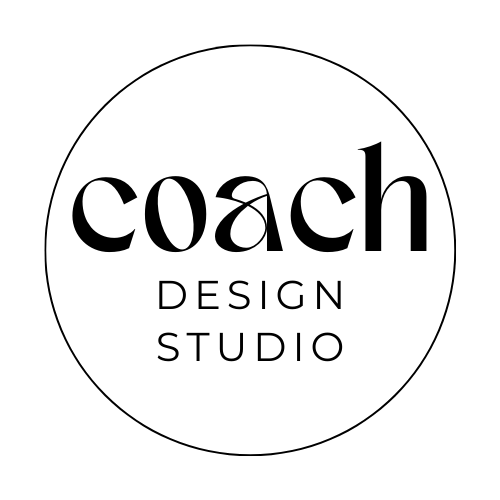 When it comes to life coaching, there are three main areas that clients want to explore: Energy (health & wellbeing), Love (relationships), and Work (career). So it’s no surprise that a significant portion of your coaching time will be dedicated to helping people take control of their working lives.
When it comes to life coaching, there are three main areas that clients want to explore: Energy (health & wellbeing), Love (relationships), and Work (career). So it’s no surprise that a significant portion of your coaching time will be dedicated to helping people take control of their working lives.
Think about it: the average person spends around one-third of their life at work, which amounts to roughly 90,000 hours! That’s why it’s crucial for individuals to feel a sense of agency, control, and positivity towards their work on a daily basis. It greatly impacts their overall happiness and satisfaction.
With my 30 years of experience in the HR profession, I’ve had the privilege of coaching countless colleagues and team members on their career journeys. One common issue I’ve noticed, especially in the corporate world, is the tendency for people to relinquish personal accountability for their careers. They rely solely on their employers to develop them and map out their career paths. While many organizations invest time and effort into employee development, it’s risky to rely solely on them for career planning. The world of work is evolving rapidly, and it’s essential to empower your clients to take a proactive approach to their own development and career planning if they’re eager to progress.
So, how can you put this into practice during your coaching engagement? Let’s dive into five practical ways you can help your clients grab hold of their careers and pave their way to success.
Boost Self-Awareness
You know what’s a really important starting point for career growth? Self-awareness! Encourage your clients to take a moment to reflect on their strengths, weaknesses, and areas where they can improve. It’s all about helping them understand themselves better. Together, you can identify the skills they need to develop to enhance their professional competence.
Coaching tool recommendation:
My ‘Career Confidence’ Bundle includes ‘Strengths in Action’ and ‘Career SWOT’ worksheets which are great for helping clients understand their current career challenges and opportunities.
The Johari Window model is a useful tool to help your clients reflect on their strengths and areas for improvement
Example Coaching Questions:
What are some strengths or positive qualities about yourself that you believe others see in you?
Are there any hidden talents or abilities that you possess but haven’t fully embraced or shared with others?
Can you identify any blind spots or areas where you may lack awareness about yourself or how others perceive you?
How comfortable are you with receiving feedback from others? Are there any specific areas you’d like feedback on?
Can you think of a situation where your perception of yourself differs from how others see you? What might be causing this difference?
How do you typically handle situations where you receive feedback or criticism about yourself or your work?
Is there a specific goal or area of personal growth that you’d like to focus on right now? How might your blind spots or undiscovered strengths impact this goal?
What steps can you take to expand your self-awareness and uncover new aspects of yourself that are currently unknown to you?
Get Clear on Career Goals and Vision
A fundamental step in enabling your clients to take control of their professional lives is helping them clarify their career goals and vision. Encourage open and honest discussions to uncover their passions, interests, and long-term aspirations. By aligning their career choices with their vision and core values, they can make informed decisions and carve out a fulfilling career path.
Remember, it’s all about guiding your clients towards creating a career that resonates with who they truly are.
Coaching tool recommendation:
The GROW Model
Goal: Help your clients set clear and specific career goals.
Reality: Explore their current career situation, strengths, and areas for development.
Options: Generate a range of career possibilities and opportunities.
Way Forward: Define actionable steps and strategies to achieve their career goals.
Example Coaching Questions:
What are your long-term career aspirations?
What values are most important to you in your career?
What are you really good at in your current role?
How can you align your career choices with your core values?
What career options do you have?
What are your long-term career aspirations?
What values are most important to you in your career?
How can you align your career choices with your vision?
What does career success mean to you? What does success in life mean to you and what part does your career play in that?
Where would you like to be in your career in 3, 5 and 10 years?
Create a personalized career development plan
Here’s the exciting part: as well as coaching your client to set and achieve their career goals using typical goal setting methods, you can guide them towards valuable resources, training programs, and networking opportunities that can make a real difference in their personal and professional growth. Let’s help them level up their skills and unlock their full potential!
Coaching Tool Recommendation:
SMART Goals
Specific: Help your clients to define specific career objectives.
Measurable: Help them identify measurable milestones and indicators of progress along the way.
Achievable: Ensure that their goals are realistic and attainable.
Relevant: Align their career plan with their long-term vision and values.
Time-bound: Set deadlines and create a timeline for goal achievement.
Example Coaching Questions:
What specific actions can you take to move closer to your career goals?
How will you measure your progress along the way?
What potential obstacles might you encounter, and how will you overcome them?
In addition, encourage your client to consider these four topic areas when building their career development plan:
Skills Development: The Half-Life of Skills, a report by consulting firm Deloitte, states that the average ‘shelf life’ of skills is rapidly declining. The half-life of learned skills has dropped from 30 years to just 2.5 years in recent decades. That means ongoing skills development is absolutely critical if your client wants to get ahead. Ask these questions:
What is their existing skill set and are there any gaps that may hinder their career progression?
Are there any new or developing technologies or methodologies within their field that they know little about?
If they were to look at the recruitment section in a trade journal or magazine in their area of specialism, what types of jobs and skills are on the rise?
Networking: Networking can provide valuable opportunities, mentorship, and access to insider knowledge. Ask these questions:
How can your client build and nurture professional relationships within their field?
Who are the influential people or thought leaders either within their organization or within the broader profession they work in? How could they build a relationship with them?
Who do you respect in your field of expertise? Could you ask them to mentor you?
Are there industry events or online communities that your client could join?
Continuous Learning: Now, more than ever, employers are looking for people who have a growth mindset and who are committed to continuous learning. Because of the rate of change, it’s important to be a ‘good learner’ because that demonstrates that you can be adaptable and keep yourself up to date no matter what happens within your chosen field of expertise. Ask these questions:
How can you keep yourself updated on industry trends?
How can you reflect on your experiences and understand what lessons you can learn and put into practice next time?
How can you best expand your knowledge and expertise?
What resources do you have available to you that would be useful for your ongoing learning?
Cultivate Resilience and Adaptability
Navigating a career often involves facing challenges and setbacks. Teach your clients the importance of resilience and adaptability. Help them build a growth mindset, embrace change, and view obstacles as learning opportunities. Provide strategies for managing stress, maintaining a positive outlook, and bouncing back from setbacks, allowing them to stay on track and pursue their career goals.
Coaching Tool Recommendation
ABC Model (Adversity-Belief-Consequence)
Adversity: Help clients identify and reframe challenges and setbacks they encounter.
Belief: Explore their beliefs and attitudes towards failure and change.
Consequence: Support them in developing resilient responses and adaptive strategies.
This model is particularly useful for a client who is currently facing a career challenge or issue.
Example Coaching Questions:
Adversity:
What specific career challenge or situation are you currently facing?
How does this make you feel?
What thoughts or beliefs come up for you when you think about this situation?
Belief:
What belief or assumption underlies your thoughts about this situation?
How does this belief impact your response to the career challenge?
Have you considered alternative perspectives or interpretations of the situation?
Consequence:
How does your belief about this situation influence your emotions and actions?
What are the consequences of holding onto this belief?
How does this belief align or conflict with your desired outcome?
Reframing:
What would be a more empowering belief to adopt in this situation?
How would this new belief impact your emotions and actions?
What evidence or past experiences support an alternative belief?
Provide Ongoing Support and Accountability
Coaching Tool Recommendation
SMART Accountability
Go back to the SMART goal setting model and agree with your client the milestones and deadlines they want to achieve, and agree how you can support them.
Example Coaching Questions:
What actions will you commit to taking to advance your career growth?
What support or resources do you need to stay motivated and on track?
How would you like us to follow up on your progress and hold you accountable towards your goals?
What specific actions or milestones would you like to set as indicators of progress?
How will you measure your progress and hold yourself accountable?
What level of support or check-ins would be most beneficial for you in staying motivated and on track?
How would you like me to provide feedback or guidance to support your ongoing growth and development?
Are there any specific challenges or obstacles you anticipate along the way that you would like us to address during our follow-up sessions?
These questions help establish clear expectations and communication around follow-up and support, ensuring that your client feels empowered and engaged in the accountability process. By addressing your clients preferences and needs, you can provide tailored support to maximize the client’s chances of achieving their goals.
Want to provide added value for your client?
If you want to provide your client with even more added value as part of your membership or coaching offer, my ‘Career Confidence’ bundle contains a career confidence journal, 2 worksheets, Resume templates and affirmation cards.
With your help, your client can build a successful career that helps them reach their full potential in a way that’s totally congruent with their life vision and values.

